The geopolitics of Sheikh Hasina's fall explained
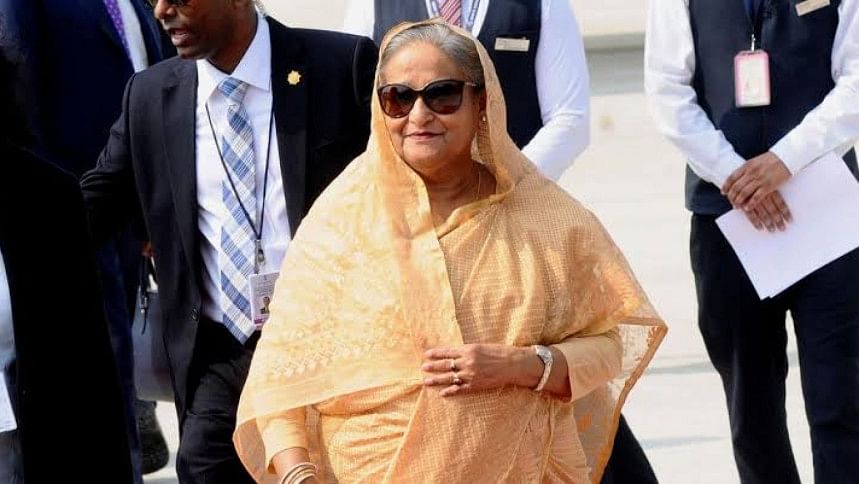
After Bangladesh's 'Iron Lady' Sheikh Hasina was ousted, a number of conspiracy theories have emerged regarding international players. Michael Kugelman, director of the South Asia Institute at the Wilson Center, addresses these speculations in an in-depth, exclusive interview with Ramisa Rob of The Daily Star.
How would you describe the overall response of the international community?
The watchword is concern: about stability risks, about a weakened economy, about an uncertain political transition. Some recent developments—police returning to work, the formation of the interim government—have eased this concern and given rise, in some quarters, to cautious optimism. But there is still lingering concern.
However, I don't want to overstate the international community's sense of worry; this crisis in Bangladesh was an internal one after all, and there are multiple wars and other major crises playing out around the world. But Bangladesh is a significant player in the world, especially because of its economy, and many global capitals have substantive partnerships with Dhaka, especially commercial ones.
Ultimately, I don't think Bangladesh's status as a battleground for great power competition will change. The US, China, Russia and also India will all have strong incentives to engage and to maintain influence. Dhaka will welcome this engagement—even though it will face the same conundrum that the Hasina government did of being a nonaligned state amid intensifying great power rivalry.
How is the US viewing India giving refuge to Sheikh Hasina after her ouster?
Hasina taking refuge in India, makes perfect sense, given that she had no closer friend than India, and especially the Narendra Modi government. I suspect the US isn't thrilled about India hosting her for a long period. At the end of the day, if India wants to build new relationships in Dhaka—and it surely does—then it should have a strong interest in not giving Hasina a long-term home in India.
There's been mixed signals regarding India's response to the fall of Sheikh Hasina. How do you view it?
Let's be clear: no country was more upset to see Hasina fall than India. We all know that New Delhi had put all its eggs in the Hasina and Awami League basket for years, and that it couldn't accept any alternative to her party. India has long bought into Hasina's argument that "she was the only thing standing between a secular and moderate Bangladesh and a nation destabilised by Islamists." At the same time, no country's security interests are more impacted by Hasina's ouster than India. New Delhi's concerns—from threats to the Bangladesh Hindu community to potential new surges of refugees crossing the border—are real and understandable.
But despite all this, India's foreign policy is pragmatic and agile. It will want to adjust to Bangladesh's dramatic new political reality. It will try to reach out to the country's new leaders. Trade, border security, great power competition—it has many compelling reasons to form a workable relationship with post-Hasina Bangladesh.
How does this regime change in Bangladesh affect the Indo-Pacific policy as a whole?
In the immediate term, the uncertainty left by Hasina's sudden fall has impacted the Indo-Pacific policy, in that the US and its allies don't have a sense as to what the strategic direction of the next government will be. Hasina's administration released an Indo-Pacific Outlook document that adeptly balanced principles upheld by both the US-led Indo-Pacific policy and China's foreign policy strategies. We don't know yet what the new government's plans are in this regard.
I don't anticipate foreign policy will be an immediate top priority for the interim government. The immediate focus areas will be law and order, the economy, and the political transition. There will be a few immediate foreign policy priorities, however: One is how to deal with India, especially in the context of how to approach the issue of Hasina so long as she remains there. The other is Bangladesh's other neighbor, Myanmar. The intensifying war there is raising the risk of greater spillover effects and increases surges of Rohingya refugees. With Bangladesh's army having been diverted and distracted by the recent political crisis, there's a taking-the-eye-off-the-ball risk that Dhaka can't afford now, given everything else going on.
Once the government is able to allocate more policy bandwidth to foreign policy—this will happen once Bangladesh achieves some stabilization—I imagine we'll see a fair amount of continuity with the Hasina government, particularly in terms of balancing relations with the great powers, the West, and the Global South. The interim government will need to be careful not to upset ties with the US and EU, Bangladesh's biggest export destinations. If it embraces democracy and doesn't lash out at the West as Hasina periodically did, Bangladesh's economic interests will be better served.
How could this fall affect Bangladesh-China relations?
I suspect the new government in Bangladesh will seek to uphold ties with China, simply because it will conclude its economic and strategic interests are best served by it. But there is a key difference we will likely see. Though Hasina balanced ties with China and India and boosted ties with Beijing, her special relationship with Modi's India meant that she could only go so far in relations with Beijing, so as not to alienate New Delhi. That need to avoid foreign policy steps that upset India will not be as strong. This could have implications for Dhaka's relations with Beijing.
There are many conspiracy theories regarding US interference and Dr Yunus' closeness with the West. Can you debunk them from the US perspective?
First, it's significant that other than Hasina and her family, and some die-hard Awami League supporters, Bangladeshis themselves are not embracing the conspiracy theory about a US—or any external—hand in her ouster. It's mostly an Indian narrative. That's a telling sign right there.
Abroad, the US is dealing with a world on fire. At home, it's dealing with an intense presidential election campaign. Bangladesh is not exactly foremost on its mind.
It's true the Chief Adviser Dr Yunus has many supporters and admirers in the US, and those that believe the baseless allegation of a US hand in Hasina's ouster will use his appointment as head of the interim government as a data point to try to validate their view. But it's hard to imagine how he can be working against Bangladesh's interests given that he commands considerable levels of support there, that he took leadership of the interim government only when requested to by the student protest leaders (and presumably the army had no issue with it), and given that he has pledged to pursue democracy and across-the-board reform.
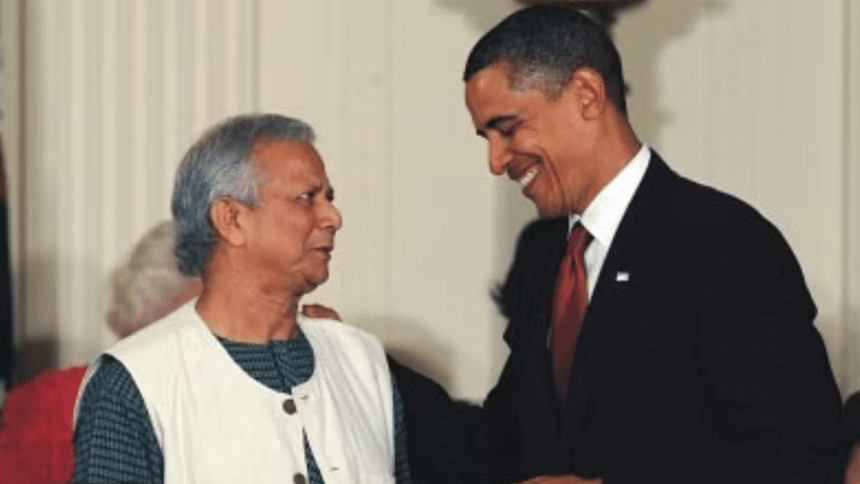
The US tends to look at Bangladesh through the lens of great power competition, and that means that while it will welcome Yunus as the head of the interim government, it will worry about the implications of a new government that may be poised to take the country even closer to China. Assuming stability returns to Bangladesh, we will see Washington pick up where it left off with a focus on trade, climate change, and strategic cooperation. Let's not forget that soon after Hasina began her ill-fated final term, President Joe Biden sent a letter to her that spoke of beginning a new era in relations, one focused on a variety of issues. And I'm quite confident that if Washington becomes concerned again about rights and democracy in Bangladesh, it won't hold back from voicing its concerns. Such a move would hopefully shatter another misconception about US policy in Bangladesh—that it favours non-Awami League parties and entities.
What's especially painful about all these allegations of a foreign hand is that they deny agency to the scores of young and brave Bangladeshis who waged a massive campaign for change—and in many cases lost their lives in the process.
There have been hundreds of cases of persecution of Hindus in Bangladesh, since August 5. What do you make of this communal violence?
Unfortunately religious violence is a longstanding reality in South Asia. Sometimes it is inspired by pure hate, at other times by broader political factors. It appears that the attacks on the Hindu community in Bangladesh in recent days have mostly been part of a wave of revenge acts against anyone considered to be a Hasina supporter. But this issue definitely needs more investigation in Bangladesh, to get a better sense of the scale of these attacks and what is driving them.
For the interim government, stopping the attacks begins with restoring law and order. And that involves getting the police back out on the streets. Since Hasina left the country there has been a security vacuum, and that just emboldens the bad guys. This is an understandably sensitive issue, given that the police were on the frontlines of the vicious crackdown on peaceful protestors, which means they have attracted a lot of public anger, and they were caught up in the revenge attacks. But you can't restore law and order without law enforcement. With many police now starting to return to work, that should help. But more will need to be done by the interim government, including taking legal actions against those behind the attacks, and engaging with the affected communities to ensure they're getting the protection they need. I'd argue that the law and order challenge will be one of the first big tests for the interim government..
There is a theory on social media that Bangladesh will become the next Afghanistan, which seems to stem from misinformation. As an expert on South Asia, do you think there exists a serious threat that Bangladesh will become an Islamist country?
It's true we're seeing some fake news—debunked by reputable fact checker sites—about attacks on minorities. Images and videos purportedly depicting attacks are in fact depicting things that happened at another time, or in another country, or not at all. But there are still attacks taking place. This is one of the many dangerous things about this fake news: It distracts attention from the attacks that ARE happening. No one can afford to be complacent, or in denial—even while there's a need to call out what's not true.
I wholly reject this notion that Bangladesh could become the next Afghanistan. Even the most casual observer of Bangladesh knows that it's a country with robust-albeit flawed-institutions, a strong state writ that extends across the country, and also a tradition of moderate Islam. Yes, there are influential religious groups like Jamaat and Hefazat that excel with mobilisation, and there have been terror groups like JMB. But these entities don't influence politics and society to the extent that you see in Afghanistan, or Pakistan for that matter. This is another case where many in India are falling prey to the Awami League narrative that a Bangladesh without Hasina and her party can only mean the unleashing of Islamist forces that will destabilise the country.
One can understand India's concerns regarding terrorists, many sponsored by Pakistan, who have inflicted great damage on India. But these false narratives regarding Bangladesh are inflating and exaggerating the notion of an Islamist threat, which risks heightening volatilities in the nation at an especially sensitive time.
What in your view led to the fall of the Awami League regime? How do you think the world should view it?
It's quite simple: Hasina's security forces resorted to egregious levels of violence against peaceful protestors, robbing Hasina of her legitimacy—which was already fragile due to growing economic stress and yet another questionable election—and prompting the nation to rally around the protestors. Those repressive actions from the security forces also unleashed pent up public grievances against the state. The genie was let out of the bottle, and eventually there was nothing else that Hasina or the Awami League could do, other than step down.
I hope the world views it that way as well, because so far as I know, those are the facts.
Views expressed in this article are the authors' own.
We welcome your contributions and analysis of global events. To submit articles to our weekly page, Geopolitical Insights, please send an email to [email protected]
Follow The Daily Star Opinion on Facebook for the latest opinions, commentaries and analyses by experts and professionals. To contribute your article or letter to The Daily Star Opinion, see our guidelines for submission.


 For all latest news, follow The Daily Star's Google News channel.
For all latest news, follow The Daily Star's Google News channel. 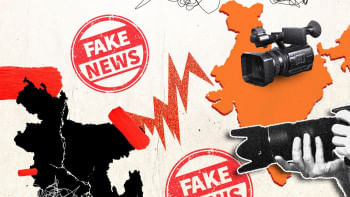

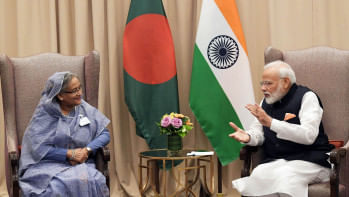



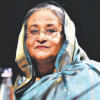


Comments